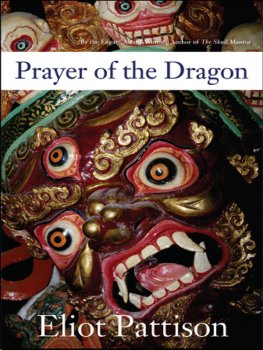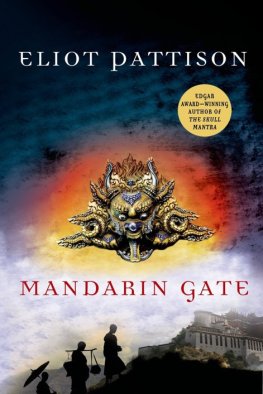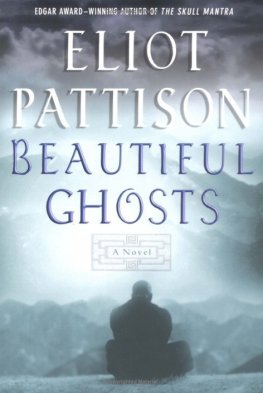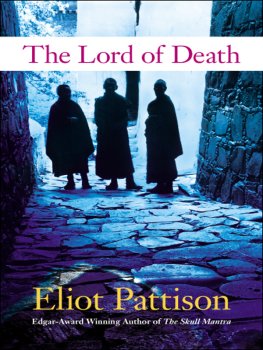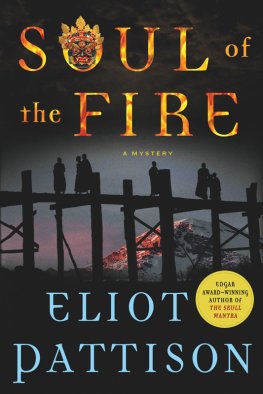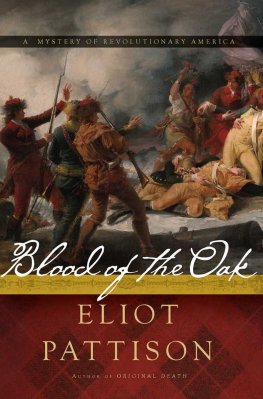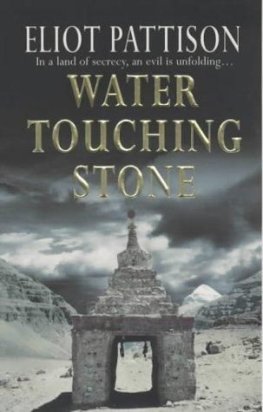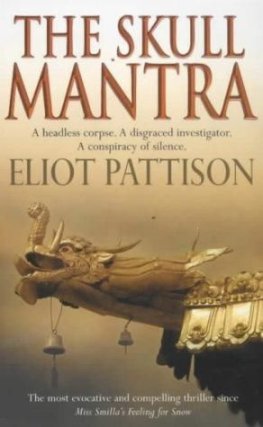Eliot Pattison - Original Death
Here you can read online Eliot Pattison - Original Death full text of the book (entire story) in english for free. Download pdf and epub, get meaning, cover and reviews about this ebook. year: 0101, publisher: Counterpoint, genre: Detective and thriller. Description of the work, (preface) as well as reviews are available. Best literature library LitArk.com created for fans of good reading and offers a wide selection of genres:
Romance novel
Science fiction
Adventure
Detective
Science
History
Home and family
Prose
Art
Politics
Computer
Non-fiction
Religion
Business
Children
Humor
Choose a favorite category and find really read worthwhile books. Enjoy immersion in the world of imagination, feel the emotions of the characters or learn something new for yourself, make an fascinating discovery.

- Book:Original Death
- Author:
- Publisher:Counterpoint
- Genre:
- Year:0101
- ISBN:9781619022508
- Rating:3 / 5
- Favourites:Add to favourites
- Your mark:
- 60
- 1
- 2
- 3
- 4
- 5
Original Death: summary, description and annotation
We offer to read an annotation, description, summary or preface (depends on what the author of the book "Original Death" wrote himself). If you haven't found the necessary information about the book — write in the comments, we will try to find it.
Original Death — read online for free the complete book (whole text) full work
Below is the text of the book, divided by pages. System saving the place of the last page read, allows you to conveniently read the book "Original Death" online for free, without having to search again every time where you left off. Put a bookmark, and you can go to the page where you finished reading at any time.
Font size:
Interval:
Bookmark:
Eliot Pattison
Original Death
LATE SUMMER 1760
Chapter One
The dead Highlanders lined the road for as far as Duncan McCallum could see, swaying from the English gibbets as crows pecked their flesh. He recognized the lifeless, sunken faces as he stumbled along in the chill grey dawn, seeing his grandfather, his uncles, then the bayoneted bodies of his mother and sisters heaped on the ground below a gallows lit by a solitary shaft of sunlight. From it his father raised a skeletal arm to point an accusing finger at him, then shouted angry words Duncan could not understand.
The cold water hit him like a violent slap. He sat up, gasping, looking into the worried, weathered countenance of his friend Conawago. The old Nipmuc Indian extended a hand to help Duncan to his feet. You were crying out again. Your clan?
Duncan, his heart still thundering, managed a short, sober nod. For years he had suffered nightmares of the English slaughter of his clan, but after arriving in the New World they had subsided until he had been nearly free of them. Suddenly, as soon as Duncan and Conawago had set out on their northern quest two weeks earlier, his dead family, some killed in battle, others executed as Jacobite rebels, the remainder brutally murdered by English plunderers, had come back, the nightmares growing more and more frequent. Conawago, revered among the tribes as a reader of dreams, had declared that his family on the other side was telling him it had unfinished business with him. As they moved ever closer to the bloody battlefields of the North, however, Duncan could not shake the nagging sense that they were summoning him to join them. Dreams were always messages from the other side, the people of the forest believed, and those messages had to be obeyed.
He watched as the old Nipmuc stepped to a wide, flat rock lapped by the shimmering lake and looked up to the sky, a hand on the amulet around his neck. Not for the first time he was invoking his totem to protect Duncan, the pitiful European who had not yet learned how to take a protector deity of his own. When he finished, he turned with a weary grin and gestured the young Scot toward the lake.
These waters have been touched by the spirits today, Conawago declared. We go no farther until you wash your darkness away.
Duncan quickly stripped off his waistcoat and shirt, shoes and stockings, then took two long strides and dove into the shimmering waters of the lake called Champlain.
The spirits were indeed in the lake that day. The water seemed unnaturally clear as he swam through it, invigorating in a way he had not known since swimming the Hebrides waters of his boyhood. As he surfaced for a breath and looked back at Conawago sunning on the rocks, he felt his foreboding fade. He resolved to speak no more of his nightmares. He would do nothing that might disturb the joy on the old mans face. Never in all the time he had known the Nipmuc had Duncan seen him so contented.
Only eight or nine more miles, Conawago declared as Duncan pulled himself out onto the rock. Fifty years of searching, and I am but two hours away. With boyish energy he tossed Duncan an apple and went back to the tattered letter in his hand, even though by now, after weeks of repeated reading, Duncan was certain Conawago had committed the extraordinary words to memory. He himself could have recited them.
Brother of my clan, the letter began. The four simple words had changed Conawagos life forever.
Once a year before the harvest moon I send this letter to a different location in the hope of reconnecting the chain of our blood. Some say you are still in Europe with kings and queens. Some say you stayed with the Jesuits and became a monk in Canada. Some say you lie in the sea in the hull of an English ship blasted by the French. Last year a woman told me she saw you making firkins in Boston. Now another says you may be teaching children in Edentown, in the Catskills. The one I seek is the last of us Nipmucs, the Conawago taken by Jesuits from the banks of the Hudson in the year 16 and 90, the one Europeans call Socrates Moon. If you are that one, I am Towantha, the son of your dead brother, though most know me as Hickory John. With me is my grandson Ojiwa, named Ishmael by those of the second world, whose parents died when he was an infant. He is twelve years of age this month. The seed of our tribe is not dead. We two yet breathe and can be found in Bethel Church, near the southern shore of Lake Champlain, on the armys new road to Ticonderoga.
In the parchment envelope had been a short strand of white wampum beads, a tribal warranty to the truth of the words.
Conawago had collapsed onto a chair when he had first read the letter, uttering syllables of surprised joy as tears ran down his cheeks. For two hours the Nipmuc had not left the chair in the kitchen of the Ramsey great house in Edentown, reciting the letter again and again as Duncan sat grinning, with Sarah Ramsey, proprietress of the town and holder of Duncans bond of indenture, at his side.
Not for the first time Duncan recalled the bittersweet smile on Sarahs face when he had looked up after the first reading. Her hand had gone to his and squeezed it. She had instantly known that Duncan would have to leave again, had known that Duncan would accompany Conawago to the settlement near Lake Champlain to at last complete his decades-long quest to reconnect with his family. Conawagos hope of ever doing so had died to a tiny flickering ember, and seeing it rekindled in the gentle old mans eyes had been the closest Duncan had ever been to witnessing a miracle. The years had fallen away from the wrinkled old face.
Conawago looked up and returned Duncans gaze. I have seen many men swim in my time, he declared, cocking his head in curiosity. They have always stayed on the surface. But you always seek the full embrace of the water spirits.
Duncan grinned. My grandfather, he explained. His idea of swimming was diving for oysters and clams. He grinned at the memory of the sturdy old Highland Scot, of whom Conawago so often reminded him.
My grandfather, Conawago replied in a whimsical tone, taught me the magic of their feathers.
Duncan paused, then realized Conawago was now gazing over his shoulder. He turned just in time to see a huge white-headed eagle land in its nest on a tiny island a hundred yards offshore.
It would be a gift of great power for my nephew, Conawago suggested.
Duncan hesitated, not understanding until he realized his friend stared at the bird. Conawago raised a hand to stop him as he took a long step toward the water. There are words to be spoken, his friend said, and he quickly recited a prayer in the tongue of the Mohawk, the Iroquois tribe whose land they journeyed through. Duncan repeated it back to him and then with a running leap dove back into the cool water of the lake. He cleared the shore with a few powerful strokes then drew in a deep breath and slipped beneath the surface.
It was a world all his own, with a wonder and freedom he knew nowhere else. He glided through the diamond-bright water, pulling with cupped hands, working his feet like the seals he swam with among the islands of his youth. Schools of small fish scattered before him. Huge trout, each a living kaleidoscope, paused to watch his passage. From the shadows at the edge of his vision, one of the lakes hulking sturgeon watched like a wise old sentinel.
Only his eyes and nose breached the surface as he reached the island. The great eagle cocked his head at him but did not move. Duncan eased forward, well aware that before he had met Conawago, his presence would have frightened the bird. Something new, wild yet calming, had quickened inside him during his months in the wilderness with the old Nipmuc.
He slowly rose, pulling his lanky six-foot frame onto the stone shingle of the island, the water running off the dark blond tail of hair at his nape. I am Duncan, chieftain of clan McCallum, he announced to the majestic creature, and then he spoke the words Conawago had given him. I come to honor you and your kind, as a poor human who cannot soar with the gods. He spoke the words in English and Mohawk, then added a prayer of his own. I come to ask you to bless the blood bond between two great men, he said, thinking of the glorious reunion that would come later that day. When he lowered his head, he spied what he sought, a long tail feather, brilliantly white, lying on the ground below the huge nest. He looked up and returned the intense stare of the bird. The eagle had the air of an expectant teacher.
Font size:
Interval:
Bookmark:
Similar books «Original Death»
Look at similar books to Original Death. We have selected literature similar in name and meaning in the hope of providing readers with more options to find new, interesting, not yet read works.
Discussion, reviews of the book Original Death and just readers' own opinions. Leave your comments, write what you think about the work, its meaning or the main characters. Specify what exactly you liked and what you didn't like, and why you think so.

